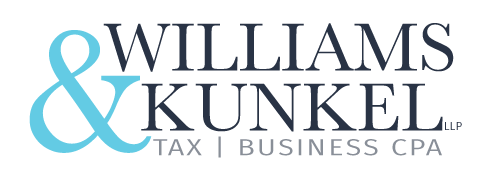As you choose your benefits for 2020, don’t look past a key saving account that could beat your 401(k) plan — at least in tax terms. (Flower Mound Tax Consultant: Don’t Miss This Savings Account)
This year, nearly 3 in 10 employers who offer workplace benefits provided a high-deductible health insurance plan along with a tax-advantaged savings account, according to data from the Kaiser Family Foundation.
These health savings accounts come with three main tax benefits. You can contribute to them on a pretax or tax-deductible basis. Your savings grow free of taxes over time. You can also make tax-free withdrawals to cover qualified medical expenses.
There’s a fourth less well-known tax advantage. Contributions you make to your HSA on a pretax basis avoid Social Security and Medicare taxes. These are often known as FICA (Federal Insurance Contributions Act) taxes.
The same applies to contributions your employer makes to your HSA.
This FICA tax is 15.3% that you share with your employer.
The point is so compelling, it can spur companies to make even larger employer contributions to workers’ HSA accounts.
Indeed, in 2018, workers in high-deductible plans with HSAs received an average annual employer contribution of $603 for single coverage and $1,073 for family coverage.
In 2020, you’ll be able to contribute up to $3,550 to your HSA if you have self-only insurance coverage. This amount goes up to $7,100 for family plans
Know your savings
Consider a married employee who is in the 24% federal income tax bracket. Let’s say they set aside $7,000 annually on a pretax basis into his HSA.
This person would save more than $535 annually in Social Security and Medicare taxes alone each year.
Further, those contributions aren’t subject to federal income taxes, resulting in another $1,680 in annual savings, according to Isberg’s calculations.
This participant would save even more if he or she resides in a state that doesn’t subject HSA contributions to income tax.
If that same participant invested the money that would have otherwise gone to taxes, and it grew at a 3% interest rate, his family would save $30,200 over 10 years.
Remember, companies split the cost of the FICA tax with their workers, so employers’ contributions to HSAs also avoid this levy.
Understand the advantages
The contributions you make to a traditional 401(k) plan aren’t subject to the same tax treatment as your HSA savings.
While 401(k) plan contributions avoid federal income taxes, they still face the FICA tax. When you withdraw money from this retirement account, the distribution is subject to income taxes, plus a 10% penalty if you’re under 59½.
Meanwhile, distributions from an HSA are tax-free if they’re for qualified medical expenses. But if you pull the money out for other reasons, you’ll pay income taxes and a 20% penalty that’s in effect until you’re 65.
If you know you’re using the money for those medical expenses, the HSA is much more attractive than putting the money in the 401(k).
You don’t have to choose one account over the other.
Here’s how you can fund both your 401(k) and HSA:
- Save enough to get the 401(k) employer match: This is free money. The most common match formula employers use is 50 cents on each dollar on the first 6% of pay, according to Vanguard.
- Put away sufficient money in your HSA to hit your deductible: Cash left unused in your HSA rolls over into the future. “In the years you have excess funds or you didn’t have to touch the account, start investing the money,” Freeman said.
- Optimize extra dollars: Max out your HSA and invest it for the long term. Stash any remaining dollars into your retirement plan.
Call Williams & Kunkel CPA today in Flower Mound at 972-446-1040 to have a chat and find out how you can save money on your taxes as a real estate professional.
In addition, you can connect with us to receive updates throughout the business week by following us on Twitter or LinkedIn or liking us on Facebook.
Source: CNBC

